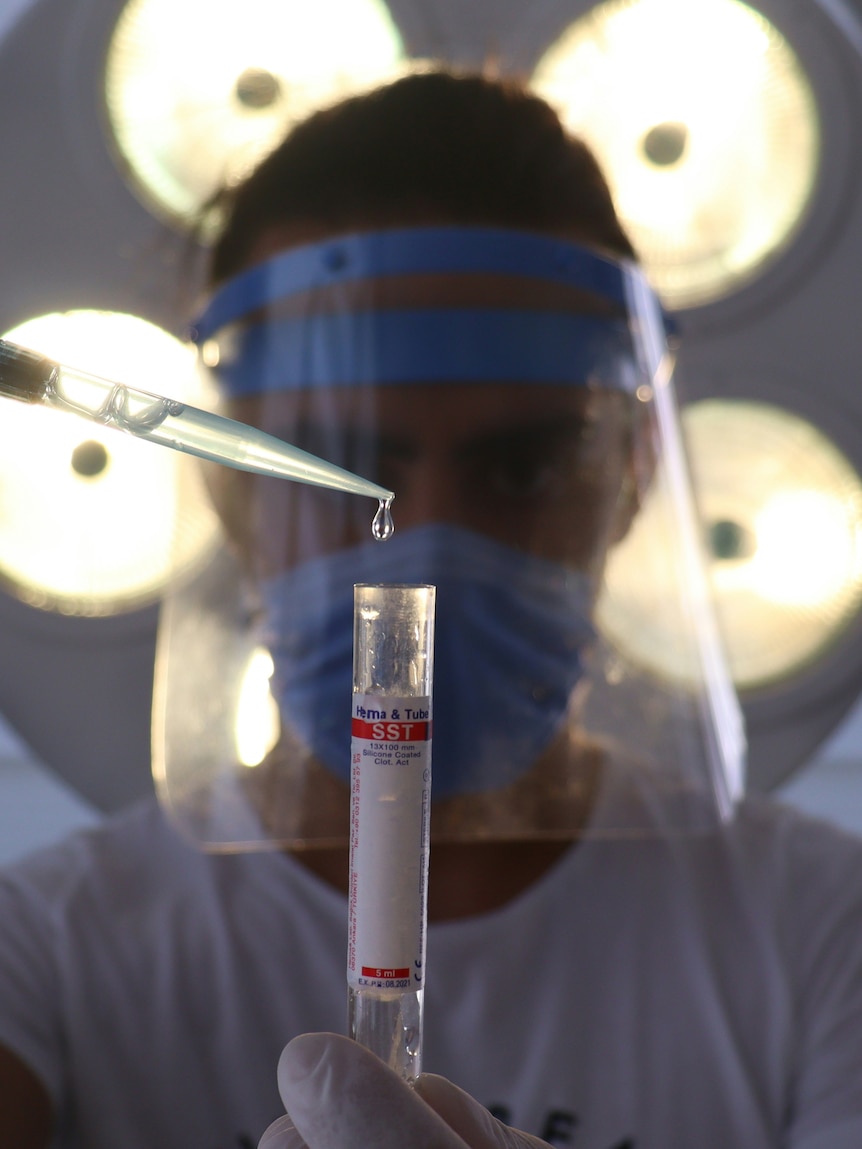Non-binary trainee doctors say they witness or experience discrimination and harassment at double the rate of male and female doctors, according to a new survey from the Medical Board of Australia.
The Medical Training Survey is in its fifth year, and the most recent survey was completed by more than half of all trainees in Australia.
Nearly two out of five (38 per cent) non-binary trainee doctors say they personally have experienced discrimination, bullying, harassment or racism, and nearly three out of five (58 per cent) say they’ve witnessed it. Those figures are double the averages for male and female trainee doctors.
“While all the other groups experienced it more from their seniors, those non-binary doctors in training experienced it more from other health care workers, like allied health, and from their peers,” Chair of the Australian Medical Association’s Council of Doctors in Training, Dr Hannah Szewczyk, told triple j Hack.
“That is disappointing and shocking.”
The survey had 23,000 respondents, 18,000 of whom nominated a gender. Only 67 of them said they were non-binary, but Dr Szewczyk said the large sample size means the result still provides a clear picture of the culture within the medical profession.
The most recent survey found that nearly one in five (19 per cent) male or female trainee doctors were considering leaving the profession, compared to 25 per cent of non-binary doctors.
Dr Szewczyk said poor workplace culture was contributing to burnout and poor mental health outcomes for trainees.
“Doctors are considering leaving. I think we can look at a lot of reasons why this might be, and probably some of the bullying, harassment might cross over and be a cause.”
Non-binary trainee doctors said they were unlikely to report bullying, discrimination or racism because they believed that nothing would be done, or because they lacked support to do so.
Male and female trainee doctors said they did not report because they feared reprisals from senior colleagues and bosses.
‘Microaggressions come from all angles’
Thomas, a non-binary doctor who asked Hack not to use their surname, said they spent “5 per cent” of their mental capacity trying to deal with a system “where your existence is a surprise”.
“The microaggressions come from all angles at all times.”
Thomas points to being misgendered in a press release, or mandatory flu vaccinations at work where only two genders are listed as options.
They said they experienced discrimination even at medical school, when their university put out reminders on how male and female trainees should dress on the job.
“I used to rock up to the wards wearing scrubs, as opposed to the sort of semi-formal attire that a lot of people wore, and every now and then people would question me about it,” Thomas said.
“I’ve had senior doctors would say, ‘why are you dressed like that?’ I would say, it’s appropriate. I’m a non-binary person.”
Dr Steph Zwi from rainbow doctors advocacy group Pride in Medicine said feeling unsafe at work impacted trainees’ abilities to do their jobs.
“Your mind is often at capacity just holding multiple patients [with] multiple demands.
“If one of those things going through your head is, ‘how do I blend in?’ or ‘how do I not get found out?’ or ‘how do I avoid this person who has been making inappropriate comments’, that’s just cognitive load that you don’t need to have when you’re already doing a very difficult job,” Dr Zwi said.
Dr Zwi said that had a flow-on effect on how doctors treated patients, especially gender-diverse and sexually diverse patients, who already have poorer mental and physical health outcomes than broader society.
“If, as a health system, we aren’t able to adequately recognise and acknowledge and keep safe our queer medical students and colleagues, how on earth are we meant to keep safe our patients and treat them with dignity and respect?”
Dr Zwi said there were few training modules in med school dealing with the specific needs of gender and sexually diverse patients, and the medical system must urgently address that to improve outcomes.
“It’s a bit of a cycle that needs to be broken, and I think, can be broken through really educating students and young doctors and incorporating into the curriculum.”




